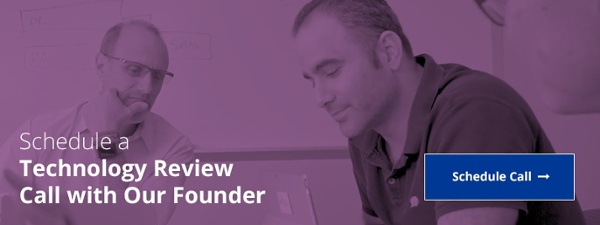Are you considering moving "to the cloud"? While there are a number of benefits to doing this - lower initial capital outlay, consistent monthly cost, accessibility from anywhere, built in business continuity, etc. - there are still a number of serious considerations to keep in mind before you do.
Thanks to its skyrocketing popularity, established technology companies and upstarts alike have rushed to create cloud offerings. The competition this has produced is a boon for companies shopping for cloud offerings, but at the same time, it also creates new and different challenges.
Whether you're searching for a cloud hosting solution or a cloud-based application, here are a few things to look for when seeking a cloud provider:
A Solid SLA
If you're going to place your applications and your data in the cloud, you will need to get a Service Level Agreement from your provider that guarantees certain levels of performance if you have any hope of sleeping at night. Not all SLAs are created equal though. Therefore, it's important to evaluate SLAs closely. What do they really provide for? What sort of outs, if any, has the provider given itself that could leave you hanging dry? One of the questions we always pose is - will you provide your SLA BEFORE we sign up? If not, you know something's fishy.
Pricing That Passes the Sniff Test
You hear it time and time again: the cloud helps companies reduce costs. But does it? When you run the numbers, many cloud offerings appear unreasonably expensive. There are certain economies of scale where the cloud works and where it doesn't. Unfortunately, far too many companies don't run the numbers before they sign up. Don't make this mistake.
An Experienced Founding/Management Team
If your business is going to rely on the cloud, you need to be able to rely on the people running your cloud. For obvious reasons, taking a chance on a cloud provider who hasn't been around for a while or the solution is run by those who lack enterprise-level experience is a risky proposition.
An Industry Standard Solution
One of the biggest problems with the cloud is that many if not most cloud providers have built clouds that aren't inter-operable with each other (can you say Amazon Web Services?). This is great for them, as it creates a highly "sticky" customer, but it's bad for customers who might want or need to jump to a different cloud down the road. Make sure your cloud solution is based on underlying technologies provided by industry leaders such as Microsoft, Vmware, and Citrix.
Strong Security
This is such a broad topic. Whether the concern is: Data Segregation, Secure Access, Encryption, Authentication, Regulatory Compliance, Data Location, or a number of other things… security is important. The tough thing with the cloud is - you have to do your due diligence at a highly detailed level. It's easy for cloud providers to demo a pretty solution, but on the inside it could be a mess of security problems. Don't be afraid to ask for an audited report of the data center.
A Clear and Robust Backup Strategy
Not all cloud providers have a plan for backup or what they provide is only a minimal solution. All too often, we've seen too many default to a 14 day retention. This may or may not be good enough for your business. Many providers charge extra to retain data longer than this. And just try to get a cloud provider to store monthly or yearly backup sets!
And, you need to consider more than just your data. Remove the hardware layer for a second (again, one of the benefits of the cloud) - what happens if a server goes down? Or gets corrupted. How does the cloud provider handle this situation? What if your Active Directory gets corrupted? Are you supposed to be performing a backup or do they have a strategy? Don’t just assume they are doing it. Get their SLA’s and guarantees in writing, and make sure you fully understand the ramifications.
Don't Forget the Pieces NOT in the Cloud
Moving to the cloud doesn't mean failures won't occur - just that they'll be different ones (than what you're used to in the past). Everything may be fine in the cloud, but you still can't work. Your internet connection goes down. Or your firewall. Or you get a virus on your local workstation. Now that everything's in the cloud, you still need to consider your points of failure - you just have to address them with redundancy like never before. You might want to consider a backup internet connection. You might need automatic fail-over on your firewall. The point is, you need to be prepared and (as Apple says) think different.
BOTTOM LINE
Right now, the cloud is like what the wild west was 150 years ago. There are a ton of companies offering their own brand of cloud. So it's hard (if not impossible) to compare apples to apples on your own. It's also immature to the extent that it's still a boutique sort of solution truly requiring an intimate knowledge and understanding of your specific business.
Not everyone can go to the cloud and not everyone should. At the same time, not every piece of your technology can or should be in the cloud as well. But, there are a ton of success stories when it's done right. And the only consistent component of every successful cloud migration is the involvement of a highly knowledgeable and experienced IT professional (like FPA) to help guide the client successfully through the process.
Are you contemplating a move to the cloud? Or are you in the cloud and everything's great or you're in the cloud and you're running into issues that you didn't foresee? Please share your thoughts in the comments section below or shoot me an email if you'd like to discuss this in more detail.
/fpa-logo-tagline.gif)







